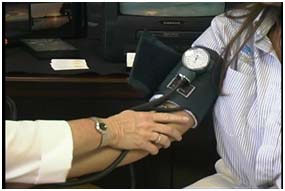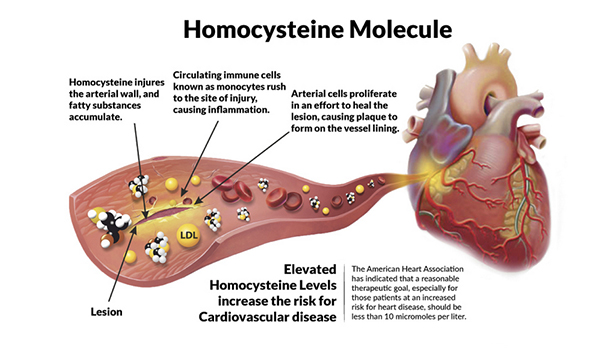
More people than ever before are surviving cancer today.
The aim, however, should be to do more than just survive but rather to thrive. Thriving starts by minimizing the negative effects of conventional cancer treatments, achieving remission, and then living a healthy, vibrant life thereafter.
Recent studies have explored the extent to which cancer may be influenced by lifestyle choices and environmental conditions. While some researchers suggest that modern lifestyle factors contribute significantly to the prevalence of certain cancers, the disease’s complexity underscores the interplay of genetic predisposition, environmental exposures, and individual behaviors. For instance, research published in “Nature Reviews Cancer” highlights that environmental factors such as tobacco use, diet, and exposure to carcinogens are major contributors to cancer risk, emphasizing the importance of preventive measures. Dr. Rachel Thompson of the World Cancer Research Fund remarked, “About one in three people in the UK will get cancer, so it is fairly commonplace in the modern world. Scientists now say a healthy diet, regular physical activity, and maintaining a healthy weight can prevent about 40% of the most common cancers.”1
It makes sense, therefore, to pay attention to lifestyle choices and environmental conditions if one has cancer, eliminating or minimizing those that negatively impact recovery chances. For more info on how lifestyle choices affect your cancer risk READ THIS
Empowering Your Immune System
We have all overcome cancer many times. Our immune system has protected us and will continue to do so, provided we give it the correct tools (nutrients) and conditions.
The biggest mistake a cancer patient can make is believing there’s nothing they can do to help themselves. The reality is that personal actions are more important than all the cancer treatments combined. This report provides proven strategies to help overcome cancer, achieve survival, and prevent recurrence.
Choosing the Right Care Team
Who you choose to treat you is as important as the treatment itself. Dr. Patrick Quillin, former Vice President of Nutrition for the Cancer Treatment Centers of America, has highlighted that complications from malnutrition contribute significantly to cancer-related mortality, a concern echoed in recent research. For instance, a 2023 study published in the “Journal of Oncology Nutrition” underscores the ongoing challenges of malnutrition among cancer patients, exacerbated by treatment-induced appetite loss and metabolic alterations. The study emphasizes the importance of nutritional interventions in improving outcomes for patients undergoing chemotherapy and radiation, which can cause severe appetite suppression and metabolic stress.2
Your body cannot fight back if it’s undernourished and your immune system is compromised. It is vital to receive super nutrition and choose a doctor willing to adopt a holistic approach, incorporating nutrition and supplementation alongside conventional treatments. Research supports that certain dietary and nutritional supplements can improve treatment outcomes and quality of life for cancer patients.
Changing the Conditions for Cancer
Cancer needs specific conditions to thrive: sugars, an acidic and anaerobic environment, and a compromised immune system.3 Altering these conditions increases the effectiveness of treatments and makes it harder for cancer to grow.
Mental Attitude Matters
Stress decreases the body’s ability to overcome disease by lowering the immune system. Emerging research suggests that a positive mental outlook may influence recovery outcomes, with recent studies highlighting links between mental well-being, stress management, and immune system functionality.4,5, Focusing on the good in life, practising gratitude, and fostering positive relationships can profoundly improve mental health and recovery.
Proven Strategies to Survive Cancer
1. Diet and Supplementation
Nourishing the body strengthens it to cope with cancer and treatments:
- Eliminate harmful substances:
- Refined sugars and high-fructose corn syrup feed cancer and suppress the immune system.
- Avoid preservatives, additives, alcohol, caffeine, red meat, and processed foods.
- Increase beneficial foods:
- Fresh fruits and vegetables rich in carotenoids, flavonoids, and cruciferous compounds.6,7
- Juicing or pureeing vegetables (e.g., carrot, beetroot, celery, apple) to maximize nutrient absorption.
- Drink 2 liters of good quality water daily to flush toxins and hydrate cells.
- Consume quality proteins (e.g., fish, legumes, free-range chicken) and whole grains.
- Incorporate probiotic foods (e.g., yogurt, kefir, sauerkraut).
- Supplementation: Use whole-food, organic supplements for vitamins, minerals, and phytonutrients. Research suggests supplementation can enhance conventional treatments without adverse effects.,8,9,10 For more on how supplementation can help you READ THIS
2. Reduce Toxins and Pollutants
- Quit smoking and reduce alcohol, tea, coffee, and soft drinks.
- Use natural deodorants and avoid chemical sprays.
- Switch to stainless steel or glass cookware and avoid plastic containers.
- Invest in a water purifier.
3. Increase Oxygen Levels
Cancer thrives in low-oxygen environments. Increase oxygenation through:
- Deep breathing exercises.
- Daily exercise, even light activity.
- Supplementing with full-spectrum vitamin E to boost oxygen-carrying capacity.11
4. Balance pH Levels
Cancer thrives in acidic environments. Increase alkalinity by:
- Eating more fruits and vegetables.
- Drinking water with freshly squeezed lemon juice each morning.
Choosing the Right Treatment
Recent advances in oncology suggest that alternatives to traditional chemotherapy and radiation therapy are gaining traction, particularly the use of repurposed drugs. For example, ivermectin and fenbendazole, originally developed as antiparasitic agents, have shown potential anticancer properties in preclinical studies.12 These drugs are believed to interfere with cancer cell metabolism and proliferation, offering a promising adjunct or alternative to conventional treatments. Additionally, treatments like immunotherapy and targeted therapies are increasingly being tailored to individual patient profiles, providing more effective and less toxic options. Patients are encouraged to explore these alternatives with their healthcare providers, ensuring a treatment plan aligned with the latest research and their specific needs. For more info on alternative treatments and drugs look at the Resources below
Detoxification Post-Treatment
Chemotherapy and radiation leave toxic residues in the body, which can cause secondary cancers.13,14 Detoxifying the body after treatments is crucial, especially for children with developing immune systems.
Taking Control
Your survival depends largely on you. The more informed you are, the better decisions you can make. There is overwhelming evidence showing it is possible to survive cancer and live a healthy life. Choosing an oncologist who integrates diet, supplementation, mental attitude, and exercise alongside conventional treatments will give your body the best chance to thrive.
References
- https://www.verywellhealth.com/how-many-cancers-linked-to-modifiable-lifestyle-risk-factors-8690109
- https://pmc.ncbi.nlm.nih.gov/articles/PMC7694504
- Warburg, O. Science, vol. 123, no. 3191, pg 309, Feb 1956
- https://pmc.ncbi.nlm.nih.gov/articles/PMC1948078
- https://pmc.ncbi.nlm.nih.gov/articles/PMC6467795
- https://pmc.ncbi.nlm.nih.gov/articles/PMC10084981/
- https://aacrjournals.org/cancerpreventionresearch/article/3/7/818/49496/A-Novel-Mechanism-of-Indole-3-Carbinol-Effects-on
- https://nypost.com/2024/12/04/lifestyle/pancreatic-cancer-patient-survival-doubled-with-high-dose-of-common-vitamin-study-finds
- Medical Xpress on Fish Oil Benefits
- https://pmc.ncbi.nlm.nih.gov/articles/PMC8812486/
- https://pubmed.ncbi.nlm.nih.gov/26780276/
- https://covid19criticalcare.com/reviews-and-monographs/cancer-care/
- https://www.cancer.org/cancer/survivorship/long-term-health-concerns/second-cancers-in-adults/treatment-risks.html
- https://www.ncbi.nlm.nih.gov/books/NBK13999/
Recommended Reading
- Prescription for Nutritional Healing, Phyllis A. Balch, 2006
- Beating Cancer with Nutrition, Dr. Patrick Quillin, 2005
- The Probiotic Revolution, Dr. Gary Huffnagle, 2007
- The Rainbow Diet, Chris Woollams, 2008
Resources


